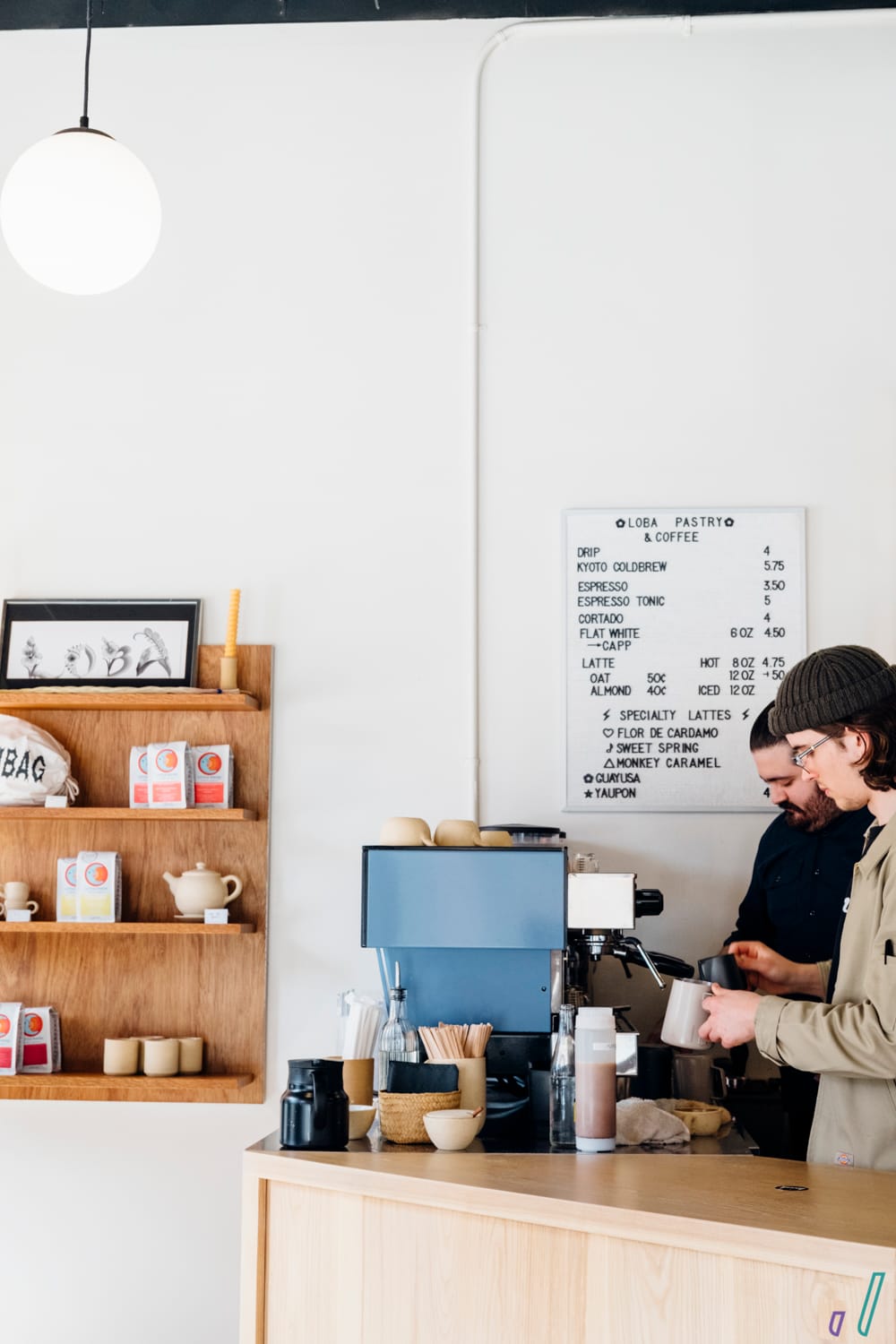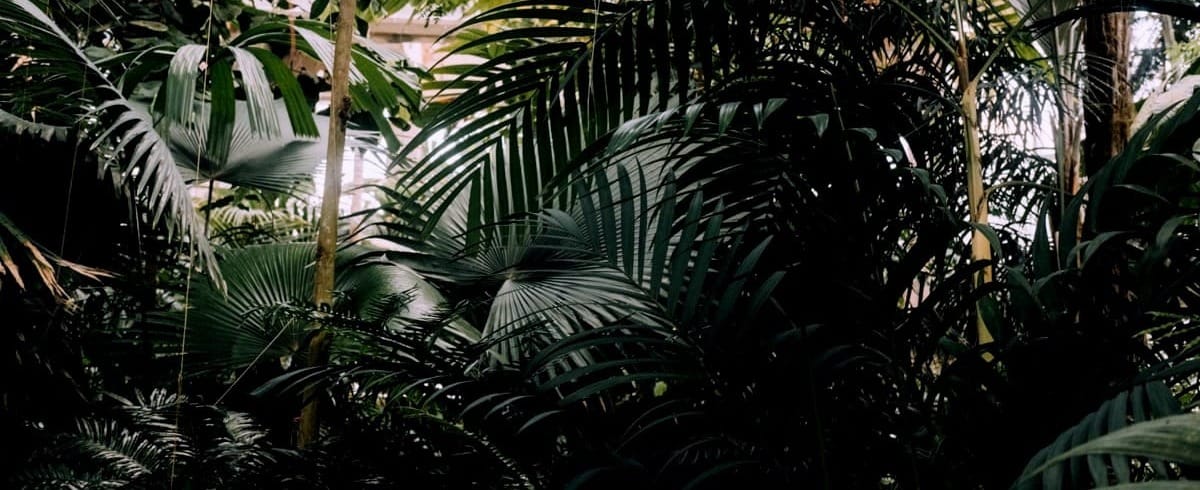Before coffee: The skills that transferred into their new job
Before coffee: what three people learned from their previous jobs and industries that carried into their new one.


Before coffee: The skills that transferred into their new job
This article set was sparked by hearing someone say they didn’t believe, as a former barista, that being a barista carried any transferrable skills out of the industry.
Now, as a former barista, I know that this is patently false. Most of the people I know who have worked in hourly service or retail positions before have some of the best customer service, problem-solving, and communication skills. Let’s not get started on multitasking.
As part of this season’s New Directions theme, I want to explore what it’s like for people to come into the industry and for those who leave it. The coffee industry can be unkind to your body and your mental health. Those who are in it and thriving have found their calling. I also know that we often have more people romanticizing the industry without first-hand knowledge of working in food service. “I want to retire and open a coffee shop on the beach.” I don’t want to shit on your dreams, but if you’re picturing this serene life filled with sun-kissed sand and rolling wave sounds, while sipping coffee and chatting with your regulars, I have bad news for you. That’s like 5-10% of the job. The rest is cleaning—so much cleaning—and people management. I also can’t even fathom the knowledge you need to comply with hiring practices, all the insurance, training, accounting, and sales—I already hate most of this, and my business is only me.
Anyway, I’m going off on a tangent again.
Let’s hear from a few folks who have entered this industry and are continuing to live their dreams.

James Rhys is currently a roaster in the Lake District in northwest England. His journey into coffee began like many of us—as a coffee enthusiast—while working on a farm. The gateway drug for him, as he says, was when he bought a bag of specialty coffee at Whole Foods. Later on, his wife purchased a coffee subscription for him from the same specialty roaster, and everything about coffee blew his mind. “I just went down this of discovering more and more about coffee,” he shares. “And then working in agriculture, my mental health really hit the skids and coffee was the one thing—10 minutes of a day—that I was not thinking about all the stress and all the crap and all the stuff that came with farming.”
He was drawn in by everything the coffee industry offered: vocabulary, new ways of talking about food, innovation, and a constantly evolving landscape. James began roasting at home and soon graduated to running his own small-batch roastery for 10 years.
In 2019, he switched from self-employment to being a full-time roaster. “I'd kind of gone as far as I could go on my own,” he says. He wanted less stress, more structure, and more access to things like regular staff cuppings. He found a part-time job as a production assistant, but it wasn’t without its issues. “I was driving 300 miles three times a week while we were trying to find somewhere to live, just to get my foot in to get that job to get going.” After moving closer to the job, he switched to a full-time position and is now a roaster.
Before being in coffee, James worked in agriculture, managing breeding cattle on a farm. His agricultural knowledge hasn’t gone to rust, he says. “Having a good understanding of how food sourcing and growing food and working in that, it just gave me a totally different perspective on coffee production.” During a farm visit, he found that the producers he talked to had the same issues that his friends in British agriculture were encountering. The knowledge base also gives him a greater appreciation of all the work that goes into coffee and, in turn, allows him to relay their stories better. “I always try and tell people it is our job not to fuck it up,” he says. “The coffee producers have done all the real work. As a coffee roaster, it’s my job to highlight that.”
His mental health has greatly improved, too, especially when he contrasts his current work with his previous one. The transition has been good for him: the physical aspect of farming carried easily into his roasting job, and while roasting can be monotonous, he also knows how hard and lonely farming is. “I am living the dream. I am warm, I'm dry. Someone pays my rent at the end of the month. Nothing is trying to kill me, and I'm not baking out in the hot sun.” Agriculture is the second most deadly industry in the UK, I learned.

Jon Bailey will be featured in both sets of articles because he’s moved out of the industry and back in. He was a barista before he left to work in a mortgage company office. Jon says he lasted only seven to eight months before re-entering the industry, this time as a general manager and later, co-owner of Lantern Coffee Bar and Lounge in Grand Rapids, Michigan.
“The corporate world—it completely changed the way I look at it,” he told me. Before, he saw an office job as a “real job,” something you do as an adult, a natural progression from a coffee job. Don’t worry, he immediately changed his mind about what constitutes a “real job.”
In his new job, he was responsible for content creation and was part of the marketing team. Everything from headshots for real estate agents to putting together marketing materials. He went to college for film and when he got the opportunity to have a full-time position doing what he went to school for, he jumped on it. (“I remember when I quit, I was sobbing in the basement. I was putting in my notice, just in tears, and that should have been a sign that I should have stayed.”)
His short stint in the corporate world taught him a few lessons. “I did learn a lot about professionalism,” says Jon. “The environment is a little different than the cafe world. Especially when you’re behind the bar full-time, it’s really easy to just be goofing around a lot. I couldn’t do that when I went into the corporate world.”
After finding himself being touted as “the video guy” at events yet doing work that was not part of his job description, he had a moment of clarity. He says, “The longer I was there, the more I realized there’s so much BS in the corporate world that is such a waste of energy, waste of time, and so unnecessary.” There were many times when the company told him that he was efficient and that his content was the best they ever had. But when it came to getting a raise, they told him no, and he left the job.
He bought into a cafe and became its co-owner. In the next article, I’ll show more fully how his coffee jobs have helped him in the corporate world and in his current role.

Brendan Doherty is currently the owner of Signal Coffee Roasters in Alameda, California, but prior to roasting coffee, he had no coffee experience. Before coffee, he worked in a bakery in the 90s, became a journalist, and then a communicator in the medical industry (Kaiser, Gilead, a malpractice insurance company, among others). All of these things had communication in common. He shares, “The same skills you use as a reporter or writer, communicator, are all the same things that get applied into these jobs.” As he got older, he started to see more frequent turnovers in the medical industry than he was comfortable with.
His partner then gifted him with a roaster, and that was it for him. Brendan explains, “I was able to fall in with somebody who's very generous, who helped me go from what I was doing on a small scale roaster to a much larger scale roaster.” The progression was common: roasting, farmers’ markets, wholesale retail clients, a cafe, and more cafes.
His time in the corporate world prepared him for some major components of running a multi-location cafe and roastery. Brendan says, “A lot of the stuff that I have from working at Kaiser—which has 186,000 employees—they spent most of their time trying to make sure that everybody was on the same page.” Tools to help organize teams, inform and update them, delegation, and empowerment— that was all from corporate work. “I got to see leadership lessons and the effects of good communication.”
Now, when he has to communicate policy changes, he imagines how the teams will hear and feel about them. Conversely, he also tries to create an environment where people feel they can speak up and will jump behind the POS or bar, if needed. “If you're asking for people to change how they make a breakfast sandwich, change how they're doing something, you need to be able to explain why and demonstrate that you understand the consequences.”
To be succinct, his corporate skills of organization, orientation, communication, and enthusiasm transferred over into running the business, now with four locations. Brendan doesn’t regret changing industries, though it certainly hasn’t been without its issues.
One of the challenges he faced coming into the coffee industry was not having a network to lean on. “I know biotech CEOs and recruiters and the entire 26th floor at Kaiser in Oakland. Those are not cafe owners. Those are now not my peers or prospects,” he shares. “I'm going from selling one thing that people’s lives depend on to a consumer product that's optional, and people have their patterns.” The industry shift was a shock and a learning curve. Plus, he went from a medical industry where information was widely shared to something he felt was the opposite. The Bay Area is home to many coffee businesses of all types, including co-roasting spaces and green coffee importers. It’s easy to roast out of your garage and sell to your friends; it’s much more difficult to scale and run a cafe. Brendan says, “What I've experienced here is how incredibly competitive it is, and that makes people very defensive and insular.”

I’m all for people entering coffee if they take the time to learn the industry and don’t broadly copy-paste strokes from one industry to the next (ahem, private equity).
This is the first of a few reported articles in this second season of New Directions. Next week, paid subscribers will receive bonus interview content that didn’t make it in here. And the following week for everyone, I’ll highlight a few people who left coffee and how their skills transferred into their new industry.
Are you a new reader or want to know what's going on? This is season 2 of tanjennts: New Directions. If you enjoyed reading this and would like to support future work like this, paid upgrades and comps are available. Forwarding and sharing are also appreciated.


etc.
article links, personal updates, and a plant feature




